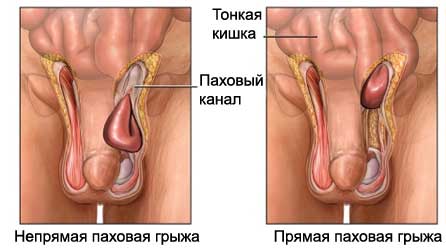Hernia – Treatment of hernia – Repair of hernia
Description of the treatment of hernia
This operation allows you to cure a hernia. Hernia It is formed, when the abdominal wall weakens, protrudes or breaks. This leads to, that the inner shell of the abdominal cavity performs and forms a bag outside the abdominal cavity. Abdominal contents, eg, small intestine, can move and get stuck in this bag.
Hernia can occur in various areas, such as:
- Smell (The so -called inguinal hernia) – The most common problem;
- Navel hernia;
- Hernia at the site of the surgical section;
- Hernia in the upper median part of the abdominal cavity;
- Herring between the stomach and hips (The so -called femoral hernia);
- A hernia in the place, where the esophagus joins the stomach (hiatal hernia).

The reasons for the treatment of a hernia
The operation is performed, To cure the hernia. The operation prevents this, So that the hernia becomes “infringed” (Closed so, that the blood supply stops). If there is a strangulation, You will need an emergency operation. The hernia will not heal without surgery. The size of the hernia and pain in the protrusion are usually increased over time.
Complications for hernia reparation
Complications are rare, but no operation ensures no risk. Before, how to perform a hernia reparation, you need to know about possible complications, which may include:
- Damage to neighboring organs or structures (intestines or bladder);
- Infection;
- Bleeding;
- Scarring;
- Pneumonia and other complications of general anesthesia.
Factors, that may increase the risk of complications:
- The presence of neurological diseases, heart disease, light;
- Age: senior 70 years;
- Obesity;
- Smoking;
- Active infection.
How a hernia is treated?
Preparing for Surgery
The doctor can conduct or prescribe the following tests:
- Inspection;
- Blood tests;
- Urine;
- Electrocardiogram – test, which detects heart activity by measurement of electrical current through the heart muscle;
- Consult your doctor about the drugs taken. A week before surgery you may be asked to stop taking some medicines:
- Aspirin or other anti-inflammatory drugs;
- Blood thinners, such as clopidogrel (Plaviks) or warfarin.
A few days before the procedure, the doctor may recommend:
- Follow a special diet;
- Take antibiotics;
- Before the operation, you need to take a shower using antibacterial soap;
- We need to organize a trip home from the hospital and home assistance during recovery;
- In the evening before the operation you can take only light food. On the day of surgery can not eat anything;
- Wear comfortable clothes.
Anesthesia
The doctor can use the following types of anesthesia:
- General anesthesia – during the operation, the patient will sleep;
- Local anesthesia – Anesthesia is introduced directly into the area of the operation and anesthetizes it.
Description of the treatment treatment procedure
Normal hernia reparation
A cut is carried out above the hernia with a scalpel. The hernia will be placed back in the abdominal cavity or a hernial bag can be removed. Muscles around the hernia are sewn together. This will close the holes or weakening of the abdominal wall. If the hernia is large or is in the groin, To strengthen the fabrics, a mesh will be installed. If a grid is used , The muscle is not stitched together.
Laparoscopic hernia reparation
Laparoscope is a thin tube with a camera at the end. It will be inserted through a small incision on the skin. The doctor will be able to see a hernia on the monitor. Small surgical instruments will be inserted through other small incisions. With their help, a reparation procedure is carried out.
After the procedure, the incision will be closed by seams or paper clips. A sterile bandage is applied to the venue.
Immediately after the treatment of a hernia
You will be directed to the chamber to restore. Fluids and anesthetic are introduced through the dropper. If there are no problems, You will be moved to the hospital room for further restoration.
How long will the treatment of a hernia take?
Less than two hours.
Repair of hernia – Will it hurt?
Anesthesia prevents pain during surgery. You may feel pain during recovery, But taking painkillers will help to cope with this problem.
Care after hernia reparation
Be sure to follow your doctor's instructions. When you return home, follow these steps:, to ensure the normal recovery:
- In most cases, you can return to a normal diet for several days;
- During the first few days, it is possible to gradually return to normal activities;
- Take an anesthetic medicine as needed;
- Ask your doctor about, when you can resume some actions (eg, driving, Sexual activity). Maybe, you need to wait 1-2 of the week;
- Ask the doctor, when it is safe to shower, bathe, or to expose the surgical site to water;
- Avoid excessive voltage (eg, energetic exercises and weight lifting) during 6-8 weeks.
After the laparoscopic operation, the recovery time will be shorter.
There is some risk of that, that a hernia can occur again. To reduce risk:
- Maintain a healthy weight;
- Strengthen the abdominal muscles;
- Treat chronic constipation, allergies or chronic cough;
- Consume Products, rich in fiber.
Communication with a doctor after the treatment of a hernia
After discharge from the hospital need to see a doctor, If the following symptoms:
- Signs of infection, including fever and chills;
- Redness, edema, increased pain, bleeding or discharge from the incision;
- Nausea and / or vomiting, which do not disappear after taking the prescribed medicines, and persist for more than two days after discharge from the hospital;
- Pain, which does not pass after taking painkillers;
- Pain, burning, frequent urination or persistent bleeding in the urine;
- Excessive soreness or swelling of the operation area;
- Cough, shortness of breath or chest pain.
